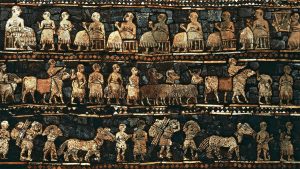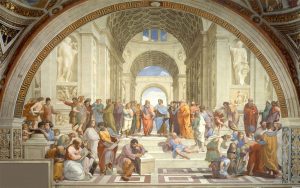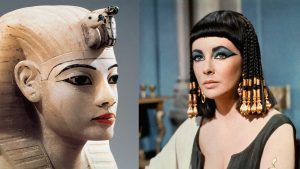
25 interesting facts about ancient Greeks
- 👁️ 1111
The ancient Greeks are renowned for their contributions to the fields of politics, philosophy, science, and art. This civilization, which existed from the 8th century BC to the 6th century AD, has left an indelible mark on the world and continues to influence it to this day. Here are 25 interesting facts about the ancient Greeks that highlight their rich cultural heritage.
- The Greeks lived in city-states, such as Athens and Sparta, which were independent of each other.
- The Olympic Games, held in Olympia, were a major event in the ancient Greek world and were held every four years to honor Zeus.
- The Greeks believed in many gods and goddesses, including Zeus, Poseidon, Athena, and Aphrodite.
- The Greeks were skilled in various arts, including poetry, drama, sculpture, and painting.
- The Greek philosopher Socrates, born in 470 BC, is regarded as one of the founders of Western philosophy.
- The Greek physician Hippocrates, born in 460 BC, is considered the father of Western medicine.
- The Greek mathematician Euclid, born in 365 BC, was known for his textbook “Elements”, which laid the foundations of geometry.
- The Greek scientist Archimedes, born in 287 BC, made important contributions in the field of mathematics and physics.
- The Greek historian Herodotus, born in 484 BC, is considered the father of history.
- The Greek playwrights Aeschylus, Sophocles, and Euripides, born in the 5th century BC, wrote plays that are still performed today.
- The Greek poet Homer, who lived in the 8th century BC, wrote the epic poems “The Iliad” and “The Odyssey”.
- The Greek philosopher Aristotle, born in 384 BC, was a student of Plato and tutored Alexander the Great.
- The Greeks were skilled seafarers and established colonies throughout the Mediterranean and Black Sea.
- The Greek language, spoken in various forms for thousands of years, is still widely used in the modern world.
- The Greek philosopher Democritus, born in 460 BC, was one of the first to propose the theory of atoms.
- The Greek physician Galen, born in 129 AD, was a prominent physician in the Roman Empire and made important contributions to the field of medicine.
- The Greek mathematician Pythagoras, born in 570 BC, is known for his theorem about the relationship between the sides of a right triangle.
- The Greek philosopher Plato, born in 427 BC, founded the Academy in Athens and was a mentor to Aristotle.
- The Greeks believed in an afterlife and buried their dead with offerings, such as food and jewelry, to help them in the next life.
- The Greek philosopher Epicurus, born in 341 BC, was one of the founders of Epicureanism, a philosophy that emphasized the pursuit of pleasure and avoidance of pain.
- The Greeks believed in fate and worshiped the three Fates, who controlled the destiny of every person.
- The Greek philosopher Xenophon, born in 430 BC, was a student of Socrates and wrote about his life and teachings.
- The Greeks developed the system of democracy, in which citizens had the right to vote and participate in government.
- The Greeks used coins as currency and created many different designs, including images of gods and goddesses.
- The Greek philosopher Pythagoras, born in 570 BC, believed in the transmigration of souls and was a vegetarian.











